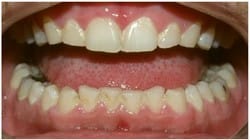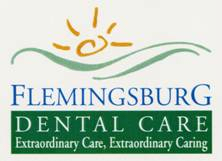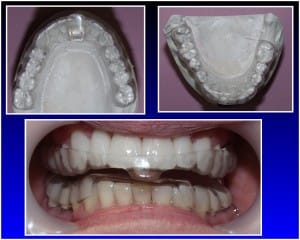 Many people in our area are not covered by dental insurance. Several times a month, we hear patients wondering if they should buy dental insurance coverage before they proceed with their dental work. This article will help you understand how dental insurance coverage works, and in what situations it can benefit you. We all know that insurance companies have developed a reputation for putting themselves before their customers. In reality, the customer for a dental insurance company is the employer who purchases a group insurance plan. With the pressures on business from the high costs of medical insurance, dental insurance plans have suffered badly for several years. In addition, more employers are offering dental insurance to their employees only if the employee pays for all or part of the premium. So when is dental insurance advantageous? Dental insurance is probably an excellent help if your employer covers the premium completely. However, unlike medical insurance, most dental insurance plans only cover a maximum of $1,000 per year. You may find it interesting that when the first dental insurance plans were offered around 1960, the average annual benefit was … $1,000 a year. So accounting for inflation since 1960, today’s plans over less than $150 in 1960 dollars. For patients that come into our office with more expensive problems, I like to tell my patients to consider their dental insurance as a $1,000 off coupon, rather than dental “insurance.” But let’s say you have to pay for part or all of your insurance premium, or your employer doesn’t offer dental insurance and you are thinking about purchasing an individual plan. For the insurance company to make a profit, they must charge enough premiums to cover your dental work, plus administrative fees, plus their profit. If you must pay all of the premiums on your own, this makes it unlikely you can come out ahead. If your employer pays for part of your benefits, the dental insurance might still be beneficial, but you’ll have to do some calculations. Take some time to calculate how much you’ll pay in benefits per year, and compare that amount to the cost of your “two free cleanings and exams.” In addition, if you are enrolling for the first time, you may have a waiting period before major work is completed, so that you’ve paid more insurance premiums before getting to enjoy many of the benefits of the plan. See also, Dr. Moorhead's aticle about the benefits of Health Savings Accounts that can provide tax-deductible benefits to pay for medical and dental expenses. In addition, don’t forget that our office offers extended payment arrangements using several outside firms, so that your dentistry can be handled affordably.
0 Comments
In 2003, Congress created a help for medical and dental bills that is a tremendous tax savings, but five years later, very few people know about them. A Health Savings Account (HSA) is a special tax-free savings account that is available to people who purchase high-deductible insurance plans. To qualify, your insurance plan must have a deductible of $1,300 for a self-only coverage plan, or $2,600 for a family coverage plan.
With a Health Savings Account plan, you’ll save significant amounts of money annually on taxes, health insurance premiums and retirement savings all at the same time. All of this can be accomplished without decreasing your real insurance protection or choices of doctors & specialists. High deductible medical insurance plans are offered by almost all major carriers, and their monthly insurance premiums are usually less than one-half of standard plans. They begin offering benefits once the $1,000 deductible is met. The coverage of the plans vary, but they all have catastrophic care. By placing the money that you save on insurance premiums in the HSA, you save to meet your deductible, and if your medical expenses for the year aren’t enough to meet the deductible, the money stays in your account – to cover medical expenses you want. Like an IRA, the money can rollover at year end and earn tax-free interest. An individual can contribute up to $3,350 in 2016; a family can contribute $6,750. If someone in the family is 55 or older, those amounts can be increased by an additional $1,000. You can use money placed in your HSA for medical bills, dental work for your entire family, eye care and a host of other eligible medical expenses.  This photo shows teeth shortened by bruxism. This photo shows teeth shortened by bruxism. Of the three causes for tooth loss, the one that surprises most people is excessive bite forces. The American Dental Association says that approximately one in three adults grind their teeth when they sleep. The condition, called bruxism, places unhealthy forces on teeth that can cause flattened or worn-down teeth, chipped areas at the gumline, loose teeth, and damages to your jaw joint. The most frequent causes of bruxism are stress and bite discrepancies. In a healthy bite, the teeth come together in harmony to protect the teeth and your jaw joint. That harmony can be lost when you have periodontal disease, tooth crowding, or missing teeth that have allowed the remaining teeth to shift or tilt. Even if your bite is perfect, stress can cause you to grind your teeth. Of people that are restless sleepers, 95% grind their teeth. The same brain activity that causes you to toss and turn also causes the bruxing. Let’s look at an example of bruxism. In the first photo, the teeth have already been shortened by at least one-fourth of their length. Often patients with problems even this severe are not aware that they are bruxing, and many will even deny it when shown the severity of the problem. And if your spouse sleeps more soundly that you, he or she may also be unaware of the problem. As a dentist, I hear patients make comments like “I sleep with my mouth open, so that can’t be happening.” Bruxing doesn’t occur constantly when you sleep, but if it’s happening, it still will cause damage. Below are some questions that may tell you a problem is present:
One treatment for bruxism is the use of a bite guard. A bite guard is a plastic appliance that fits over your teeth and protects them from damaged that’s caused by grinding. The kind of bite guards sold at the pharmacy can actually make things worse. Custom nightguards can be made that are extremely comfortable, and the newest designs, like the one shown here, actually have a relaxing effect on the muscles. If the arrangement of your teeth lacks harmony, there may be advantages to changing how your bite comes together. Orthodontic treatment (“braces”) can make dramatic changes, or your dentist can use a process called equilibration to reshape the biting surfaces of your teeth to improve the way they come together. Those in and around Fleming County, suffering from tooth grinding and other issues from Bruxism, should contact Dr. William Moorhead, at Flemingsburg Dental care. If you’re suffering headaches, or see tooth wear that you’re concerned about, give us a call at 888-733-3163. Your teeth and your mouth will thank you! |
Articles
All
AuthorDr. Moorhead and his team write about dental news, and answer patient questions. Archives |


 RSS Feed
RSS Feed